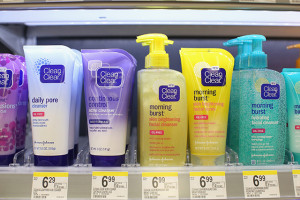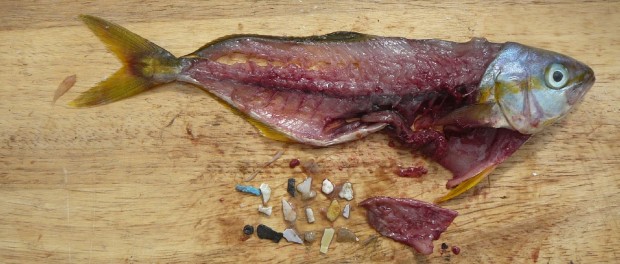I Just Want to Say One Word to You: Plastics
Over the past 50 years or so, plastic has become central to our daily lives. Only in recent years have we discovered that plastics come at a price: the ecological destruction of our oceans. You’ve probably heard about the large, swirling garbage patch of plastic debris in the Pacific Ocean. But have you heard about Microbeads and why they should scare you as much or more?
What are microbeads and why are they dangerous?
Microbeads are micro-plastic particle abrasives – plastic spheres 5 millimeters or smaller – used in many personal care products like sparkly toothpaste and exfoliating face wash. A single product can contain over 350,000 microbeads.
 Microbeads are designed to wash down the drain but are often too small to be filtered out by waste-water treatment facilities, and instead end up in our waterways and ocean.
Microbeads are designed to wash down the drain but are often too small to be filtered out by waste-water treatment facilities, and instead end up in our waterways and ocean.
Microbeads have emerged as a prevalent form of pollution in our waterways and marine environment, contributing approximately 38 tons of plastic annually. The tiny particles have appeared in ocean debris piles, the Great Lakes, and the Los Angeles River. More than 450,000 microbeads per square kilometer were found in Lake Erie in 2012. 471 million plastic microbeads are washing into the San Francisco Bay each day.
Most microbeads are not biodegradable and absorb various toxins such as DDT, PCBs (flame retardants) and other industrial chemicals to their surfaces and act as a sponge for these toxic chemicals. Fish and other marine organisms mistake the microbeads for food, eat them, and the toxins make their way up the food chain. If these fish end up on your dinner table, you will be ingesting those toxins and plastics too.
There are safe, natural alternatives to microbeads such as apricot shells, jojoba wax, walnut shells, cocoa beans, sugar crystals and sea salt. The Body Shop, which is owned by L’Oréal, will phase out microbeads by next year and L’Oréal, Johnson & Johnson and Procter & Gamble have pledged to phase out micro-beads by 2017. The Dutch government is pushing hard for a European ban.
California is the first US Coastal state to pass legislation to ban microbeads from products such as facial scrubs, soaps, and toothpaste. The law, called AB 888, passed the Senate in California this summer after narrowly missing passage last year. Next the law will go California’s Governor and if he signs it, it will become law. California is the first large state to ban microbeads and we hope other states and countries will follow California’s lead, ban microbeads and protect not just the oceans and sea life but human beings as well (what goes into sea life moves up the food chain).
The law would take effect on January 1, 2020, disappointingly far off, but better than not at all. Meanwhile, you can check to see if the products you use are plastic-free by reading the label. If you see ingredients like “polyethylene” and “polypropylene” don’t buy the product.


Leave a comment